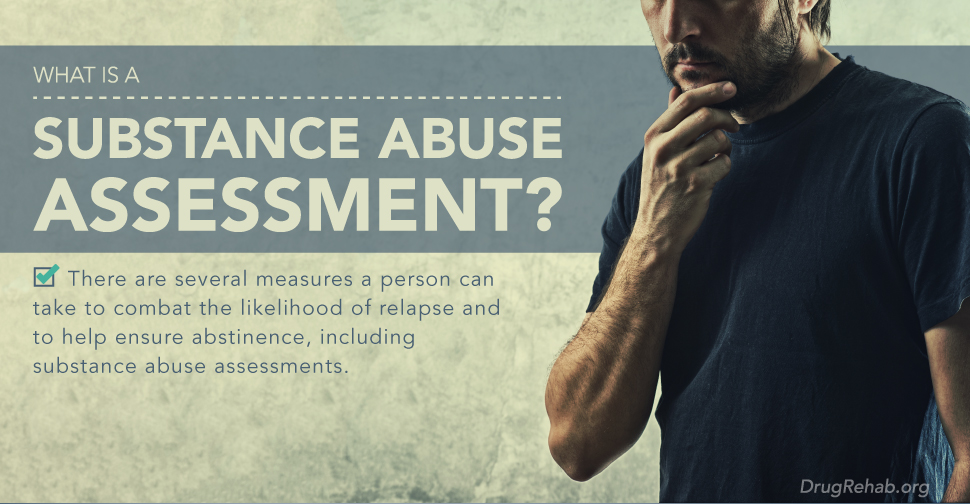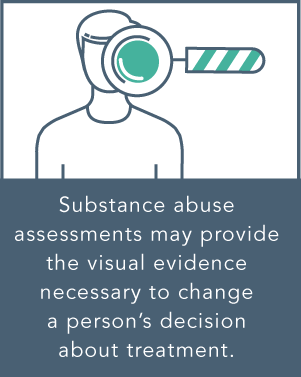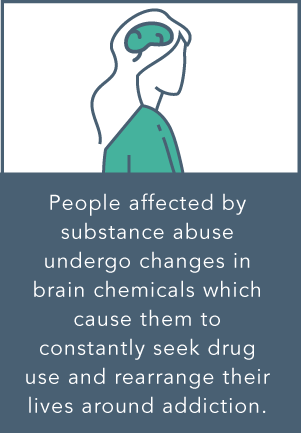
Given the nature of substance abuse, it may come as no surprise that treatment for substance abuse is not an easy feat. Many substances foster tolerance, meaning people who engage in using those substances require a higher dosage to achieve the same desired effect. Taking higher doses or using substances more frequently greatly increases a person’s risk of overdose. That is why so many treatment methods include a focus on abstinence or avoiding use of substances altogether. Further, relapses are fairly likely in early recovery. There are several measures a person can take to combat the likelihood of relapse and to help ensure abstinence, including substance abuse assessments.
Substance Abuse Assessment Defined
 As the American Society of Addiction Medicine (ASAM) explains, “for those at risk of developing a serious problem with drinking or drugs, the identification of early warning signs can be enough to change negative drinking or drug use habits.” Substance abuse assessments may provide the visual evidence necessary to change a person’s decision about treatment.
As the American Society of Addiction Medicine (ASAM) explains, “for those at risk of developing a serious problem with drinking or drugs, the identification of early warning signs can be enough to change negative drinking or drug use habits.” Substance abuse assessments may provide the visual evidence necessary to change a person’s decision about treatment.
Assessments are interview screenings which may be self-administered or administered by a physician or clinician, family member, parent, friend, or coworker. Essentially, assessments involve a series of questions which help identify warning signs of substance abuse. Some indicators may be frequency of use (i.e. daily, monthly, or yearly) or duration of use (i.e. how long abuse may have occurred).
What Kinds Of Assessments Are Available?
Clinician’s screenings may be as simple as asking how often a person abuses each of a list of substances, with answers ranging from never to daily to monthly. If a person engages in substance use daily or more, that person will be deemed at high risk of substance abuse.
Some screenings may be more in-depth, involving a series of questions which are then scored based on the answers—risk of abuse is then based on the tabulated score.
Other assessments involve a person’s personal history of substance abuse, health history, family history of substance abuse, age, and may also ask about any current mental health disorders—all of which can contribute to a person’s risk of developing a substance use disorder. There are also assessments which may gauge a person’s substance abuse over the past 12 months. Questions for these assessments may include the following, as noted by the National Institute on Drug Abuse (NIDA):
- Have you used substances other than prescribed medications in the past 12 months?
- Can you make it through a week without using substances? A day?
- Do you engage in abuse of more than one substance at a time?
- Have you ever experienced a “blackout” due to drug use?
- Do you have the ability to stop use of substances when you desire?
- Do you ever feel remorse about your substance use?
- Does anyone close to you, i.e. family, complain about or mention your drug use?
- Do you feel that you have ever let down your family or fallen short on obligations due to drug use?
- Can you say that you have ever done something illegal in order to obtain substances?
- Have you ever undergone withdrawal symptoms when you stopped use of drugs?
- Have you experienced medical side effects due to drug use (i.e. loss of memory, contracted contagious diseases, tremors, etc.)?
 Certain assessments may be geared toward adolescents and can be administered by parents or clinicians. The questions involve many of the same questions given to adults but some are more teen-specific. Examples of questions on an adolescent substance abuse screen may be:
Certain assessments may be geared toward adolescents and can be administered by parents or clinicians. The questions involve many of the same questions given to adults but some are more teen-specific. Examples of questions on an adolescent substance abuse screen may be:
- Have you ever lost friends due to your drug use?
- Have you ever been in trouble at school because of drug use?
- Are you falling behind in school due to drug use?
- Have you been arrested for drug use?
- Have you contacted someone about getting help with treatment?
A variety of assessments are available. The specific tool may change depending on your situation or what your clinician deems most appropriate. The American Society of Addiction Medicine provides a good resource on a variety of assessments, for various situations here.
Can Assessments Be Used For Anything Else?
Substance abuse screenings are typically used for identifying early signs of a substance use disorder, but clinician assessments may also be used to identify withdrawal symptoms and severity. An example of a clinician assessment for opioid withdrawal found on the NIDA website measures a patient’s: anxiety, irritability, goosebumps, pulse rate, pupil dilation, restlessness (i.e. ability to sit still), bone and joint aches, obvious runny nose or tearing of eyes, gastrointestinal upset (such as vomiting or diarrhea), tremors, and yawning. Each of these are assessed on a scale of one to five, with five identified as a high degree of the symptom and one as the lesser degree. Because symptoms of opioid withdrawal are similar to those of a severe influenza infection, screening during a medical assessment may help to quickly rule out infection and get a person the proper help and intervention.
What To Do If You Are At Risk Of Substance Abuse
 Assessments are in place to help prevent substance abuse, so do not despair if you or someone you know is at risk of abuse. If someone you know is at risk, it may be necessary to talk to the person. However, timing and location may be important factors in considering this conversation. People affected by substance abuse undergo changes in brain chemicals which cause them to constantly seek drug use and rearrange their lives around addiction. Therefore, an addicted individual may not be ready to talk about substance abuse, but it is the first step in getting the right help. Begin the conversation in a low-stress environment, privately if possible, and allow plenty of time.
Assessments are in place to help prevent substance abuse, so do not despair if you or someone you know is at risk of abuse. If someone you know is at risk, it may be necessary to talk to the person. However, timing and location may be important factors in considering this conversation. People affected by substance abuse undergo changes in brain chemicals which cause them to constantly seek drug use and rearrange their lives around addiction. Therefore, an addicted individual may not be ready to talk about substance abuse, but it is the first step in getting the right help. Begin the conversation in a low-stress environment, privately if possible, and allow plenty of time.
If a person is ready for treatment, the next step is getting in touch with resources and finding the right location and recovery method. People afflicted with severe substance abuse may require inpatient stays for treatment, and this can mean a stay in a facility with professional assistance and support. Treatment methods range from counseling and behavioral therapy to medication, alternative therapy, and extended care. Whichever treatment you choose, you may find it useful to have professional support along the way.
Getting Treatment For Substance Abuse
Substance abuse assessments may be the first step in identifying a substance use disorder and treatment is the first step in recovery. If you are struggling with substance abuse and ready to make the decision that can change your life, we are ready to help you. Contact us today at DrugRehab.org, and we can get you in touch with professionals who will help find the treatment plan that works for you or your loved one.
Sources
American Society Of Addiction Medicine—Screening And Assessment
National Institute On Drug Abuse—Screening, Assessment, And Drug Testing Resources
SAPAA—Screening & Assessment


